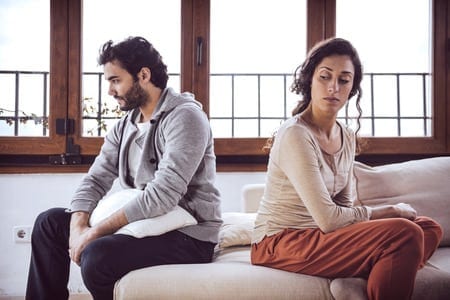Is Distance the new Closeness?

Absence does makes the heart grow fonder, but does geographical distance increase romantic closeness?
Usually we imagine that we need to live relatively close to each other and see each other often to develop a close romantic relationship.
However, a growing body of research by Aaron Ben-Zeez in the US indicates otherwise: His research has found that long-distance relationships often have an equal or greater value in maintaining and promoting romantic relationships.
So, is living apart together better than living together?
Closeness is a crucial element that determines the emotional intensity we feel with a partner, and we certainly need to have a certain amount of physical closeness to develop an intimate and emotionally connected connection. And love includes the wish to become as close as possible to the person we love.
But, despite this, there are now increasing numbers of romantic couples who live at a geographical distance from each other.
Take the example of what Aaron calls the Commuter marriage. A commuter marriage is a relationship between people who are married and intend to remain so, but nevertheless live apart, usually because of the locations of their jobs, educational demands, and dual-career pursuits. They travel regularly in order to be together, often on weekends but sometimes less frequently. These kind of distant relationships are now a growing form of romantic relationships.
Phone calls, videos, instant messaging, texting, and e-mails allow you to communicate immediately in order to sustain a continuous meaningful romantic relationship despite the geographical distance.
The increase in distant romantic relationships can be largely due to the increased value placed on personal flourishing in romantic relationships, as well as in marriage.
In his book, Passionate marriage, David Schnarch talked about 2 models of Intimacy: other-validated intimacy and self-validated intimacy.
When we are wanting other-validated intimacy we are seeking acceptance, empathy, validation, and reciprocal disclosure from our partner. This is indeed great and part of a healthy relationship, but there is also self validated intimacy which relies on each person maintaining his or her own autonomy and self-worth.
This style involves the ability to maintain your sense of self while in close contact with the partner (who may or may not be validating you).
Enter Self Flourishing (a larger emphasis on yourself and your own development as a person) and … Joint flourishing where love is the wish to flourish together with a flourishing partner for many years.
When personal flourishing is at the center of the romantic relationship and marriage, the geographical closeness to the partner becomes of less importance.
“Relationship at a distance can do things for the heart that a closer, day-to-day companionship cannot.” Thomas Moore
“Absence diminishes mediocre passions and increases great ones, as the wind extinguishes candles and fans fires.” François de La Rochefoucauld
Some kind of distance, providing a greater personal space and enabling greater personal flourishing, can be advantageous for our personal relationship. Having said that, too much distance may harm the relationship.
We all need to find the right balance of freedom to be ourself, and connectedness with our partner, and we don’t have to live a physical distance away from our partner to experience this. It may just be that we both make the time to do our own thing, while still living in the same house.
So that when we come back together, we have something new to bring back to our partner, bringing a freshness that often isn’t there when you spend almost all your time together.
It your relationship has got the blahs or your bored with too much togetherness, give us a ring and book in for a relationship counselling session and we can help you get the spark back again.
More on 4 steps to heal your relationship in our next blog.
Warmest regards
Julie
